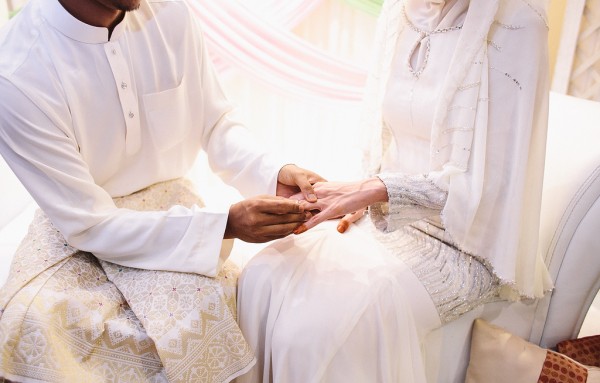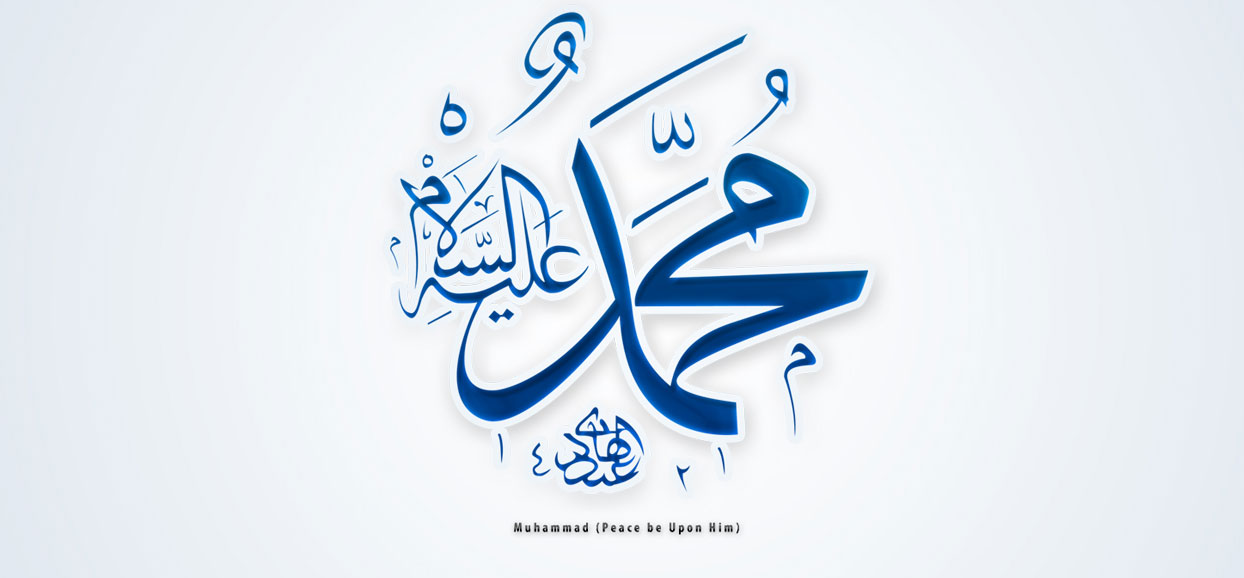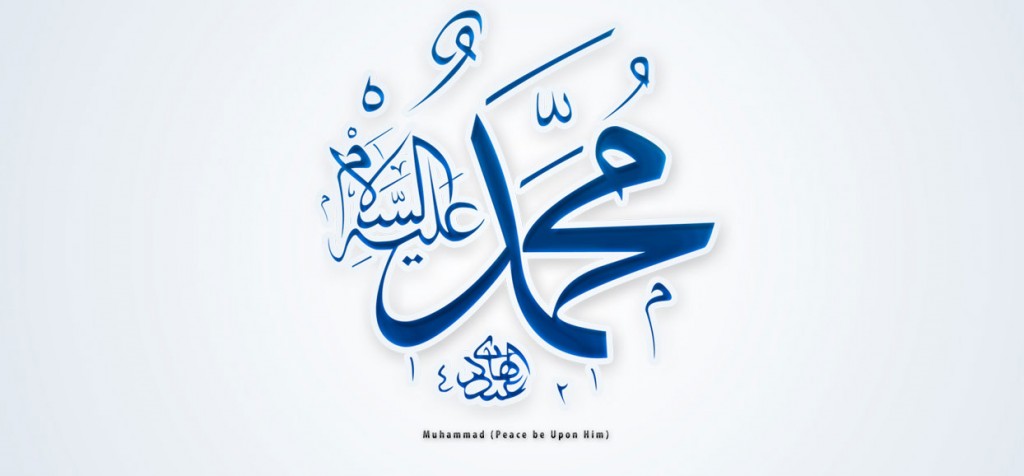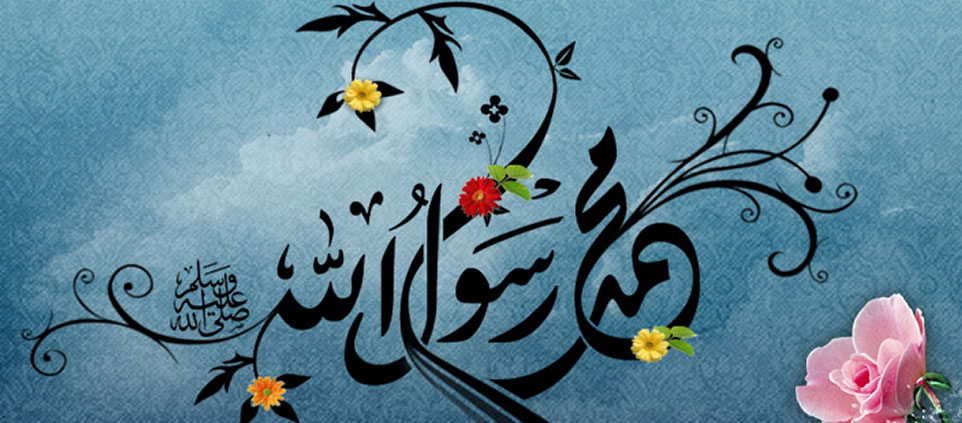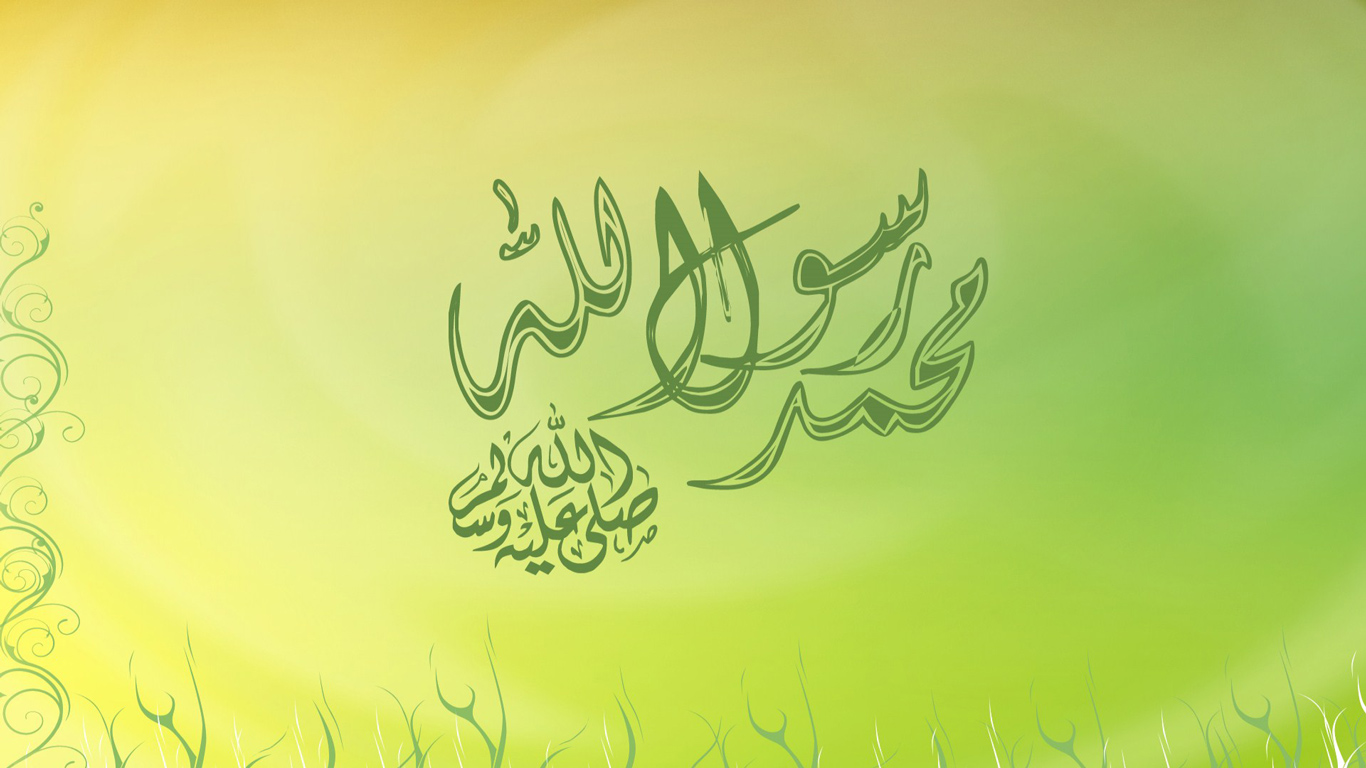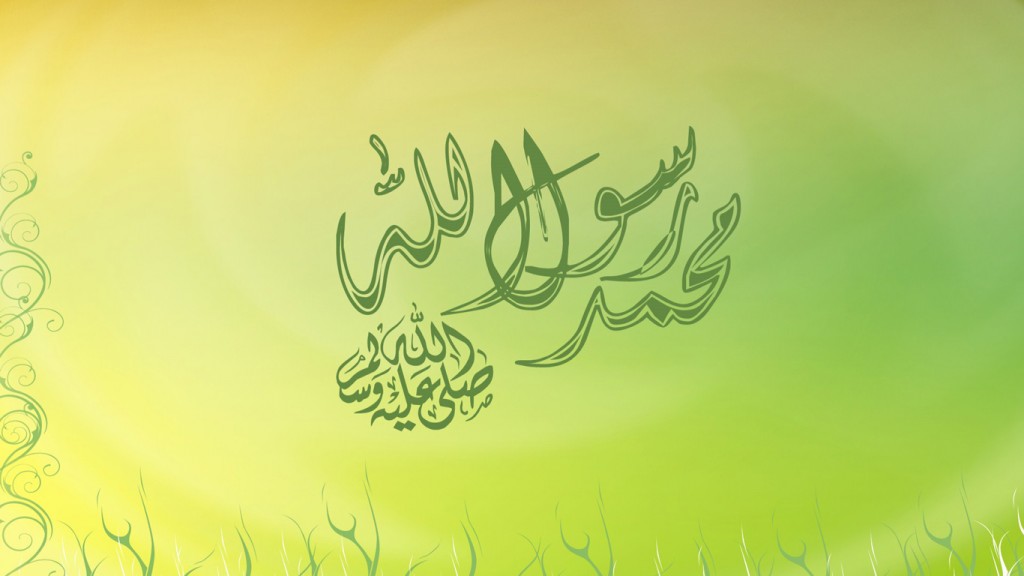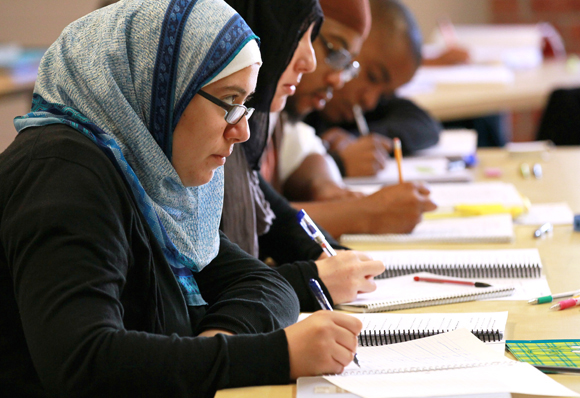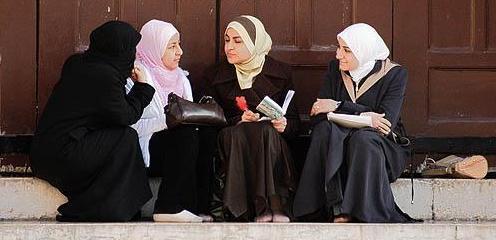 The Holy Prophet (S) always entreated to Almighty Allah with humility and sincerity to bestow him with good manners. In his supplications, His Eminence said: My Lord, improve my manners and morals. He also prayed: O Lord, Keep me free of bad morals and manners.
The Holy Prophet (S) always entreated to Almighty Allah with humility and sincerity to bestow him with good manners. In his supplications, His Eminence said: My Lord, improve my manners and morals. He also prayed: O Lord, Keep me free of bad morals and manners.
God answered his prayers and revealed the Quran on him and disciplined him through Quran and the Quran became his nature. Saad ibn Hisham says: I asked Ayesha about the morals and manners of the Holy Prophet (S). She said: Have you not read the Quran? I asked: Why? She said: The morals of the Prophet are same as Quran.
Morals of the Prophet are taken directly from revelation and Quran. By way of examples see the following:
خُذِ الْعَفْوَ وَأْمُرْ بِالْعُرْفِ وَأَعْرِضْ عَنِ الْجَهِلِينَ
“Take to forgiveness and enjoin good and turn aside from the ignorant.” (7:199)
إِنَّ اللَّهَ يَأْمُرُ بِالْعَدْلِ وَالْإِحْسَنِ
“Surely Allah enjoins the doing of justice and the doing of good (to others)…” (16:90)
وَاصْبِرْ وَمَا صَبْرُكَ إِلَّا بِاللَّهِ
“And be patient and your patience is not but by (the assistance of) Allah.” (16:127)
وَ اصْبِرْ عَلَى مَآ أَصَابَكَ إِنَّ ذَ لِكَ مِنْ عَزْمِ الْأُمُورِ
“…and bear patiently that which befalls you; surely these acts require courage.” (31:17)
وَلَمَن صَبَرَ وَغَفَرَ إِنَّ ذَلِكَ لَمِنْ عَزْمِ الْأُمُورِ
“And whoever is patient and forgiving, these most surely are actions due to courage.” (42:43)
فَاعْفُ عَنْهُمْ وَاصْفَحْ إِنَّ اللَّهَ يُحِبُّ الْمُحْسِنِينَ
“…so pardon them and turn away; surely Allah loves those who do good (to others).” (5:13)
وَلْيَعْفُواْ وَلْيَصْفَحُواْ أَلَا تُحِبُّونَ أَن يَغْفِرَ اللَّهُ لَكُمْ
“…and they should pardon and turn away. Do you not love that Allah should forgive you?” (24:22)
ادْفَعْ بِالَّتِى هِىَ أَحْسَنُ فَإِذَا الَّذِى بَيْنَكَ وَ بَيْنَهُ عَدَاوَةٌ كَأَنَّهُ وَلِىٌّ حَمِيمٌ
“Repel (evil) with what is best, when lo! he between whom and you was enmity would be as if he were a warm friend.” (41:34)
وَالْكَظِمِينَ الْغَيْظَ وَ الْعَافِينَ عَنِ الْنَّاسِ
“…and those who restrain (their) anger and pardon men.” (3:134)
اجْتَنِبُواْ كَثِيراً مِّنَ الظَّنِّ إِنَّ بَعْضَ الظَّنِّ إِثْمٌ وَلَا تَجَسَّسُواْ وَلَا يَغْتَب بَّعْضُكُم بَعْضاً
“…avoid most of suspicion, for surely suspicion in some cases is a sin, and do not spy nor let some of you backbite others.” (49:12)
In the above verses and hundreds of other verses Almighty Allah has mentioned good morals and manners and advised the Prophet and his followers to follow them and He has also listed the bad habits and morals and asked them to keep away from them. The Holy Prophet (S) himself observed good manners and morals and kept away from bad manners and morals, in such a way that he can be called as the personification of the morals and manners of Quran as Ayesha had described him with this title. That is why Almighty Allah said with regard to him:
وَإِنَّكَ لَعَلَى خُلُقٍ عَظِيمٍ
“And most surely you conform (yourself) to sublime morality.” (68:4)
The Holy Prophet (S) himself acted on good manners and by his word and speech, continuously advised the Muslims to observe good manners and morals and said: I have been sent to perfect morals. Therefore hundreds of traditions have been recorded from the Prophet of Islam with regard to ethical problems and recorded in books of traditions.
Good morals and preferable manners can be considered as most important factors of his popularity and influence among the Muslims. Since they did what he told them to do and agreed to what he said. The same point is mentioned in Quran:
فَبِمَا رَحْمَةٍ مِنَ اللَّهِ لِنْتَ لَهُمْ وَلَوْ كُنْتَ فَظّاً غَلِيظَ الْقَلْبِ لَانْفَضُّواْ مِنْ حَوْلِكَ
“Thus it is due to mercy from Allah that you deal with them gently, and had you been rough, hard hearted, they would certainly have dispersed from around you…” (3:159)
Some Qualities of the Prophet
Faiz Kashani has narrated from Abul Bakhtari that he said with regard to the Prophet: The Prophet never spoke ill of the believers and if by chance he uttered something harsh, he made amends for it immediately by doing a good turn to them. He never cursed his women or servants. During battles, His Eminence was urged to curse the enemies, but he said: I have been sent for mercy and guidance and not to curse. Whenever he was suggested to curse Muslims or infidels, especially or generally he used to rather pray for them.
He never beat anyone; except that it should be for the sake of God. He never sought revenge to any offence, except if it had been an affront to God. He never had two options to choose from, but that he chose the easiest of them. Except that it should be a cause of sin or breaking off of relations as he kept away from it more than anyone else. No free man or slave ever came to him with a request, but that he hastened to help him or her immediately.
Anas says: By God, the Messenger of Allah (S) never ordered me to do something which I did not like. And he never said: Why didn’t you do it? And if his family members scolded me for that job, he said: Leave him, because there is a job he has accomplished. The Messenger of Allah (S) never spoke in a harsh manner, if the bed was made for him, he slept on it and if not, he slept on bare floor.
His manners were such that he greeted all those he met. He never interrupted others while they spoke and waited patiently for others to finish speaking.
When he shook hands he never retrieved his hand before the other person. When he met any of the companions, he shook hands with them. He took their hand in his hands and interlaced his fingers with theirs and held them firm. He never arose or sat down without mentioning God. If a person came to meet him when he was praying, he shortened his prayer and asked: Do you want something from me?
After fulfilling his need, he again continued his prayer. He never occupied a special place in assemblies and he took any seat that was vacant. He never stretched his legs in front of others, lest there should be less space for others; except when ample space was available. He mostly sat facing the Qibla. He greeted all those who came to meet him and he even spread out his cloak for the visitor to sit on even though he was not related to him. Whoever came to meet him was urged to sit in the seat of the Prophet.
He was respectful to one and all in such a way that each of them was convinced that he or she was the most respected person in view of the Prophet. He paid equal attention to all those who were present in the assembly. His gathering was in a halo of modesty, humility and trust. Allah has said with regard to him:
“Thus it is due to mercy from Allah that you deal with them gently, and had you been rough, hard hearted, they would certainly have dispersed from around you.”
He addressed his companions with their agnomen (Kunniyat) in order to accord them respect and please them. He selected an agnomen for whosoever who did not have it already. He even selected agnomens for ladies who had children and those who did not have any children. He gave agnomen even to children in order to please them. He was angered by people only after a long time and used to become happy very soon. He was most beneficial for the people. He never raised his voice in his assemblies. When he arose from a gathering, he said: “Glory be to You, O Allah, and praise be to You. I witness that there is no god except You. I seek Your forgiveness and turn to You in repentance.” He then said: Jibraeel has taught me as such.31
Forgiveness Despite Having The Power Of Revenge
The Holy Prophet (S) was the most forbearing person. He was most inclined than others to forgive despite having the power to retaliate. One day he distributed gold and silver necklaces among his companions, which were a part of public treasury. A Bedouin stood up and objected: Has God not ordered you to observe justice? I do not consider you just in this distribution. He said: Who else other than me would deal with you in such a just manner?
When that man wanted to go away, the Prophet said: Call him back. Jabir has narrated that the Holy Prophet (S), after the Battle of Hunain distributed silver coins among the people, which were obtained as war booty. A man said: O Messenger of Allah (S), distribute equitably. The Holy Prophet (S) said: If I am not just, who else would be? If it is so, I would be causing harm. At this moment Umar stood up and said: O Messenger of Allah (S), he is a hypocrite; allow me to strike off his head. The Holy Prophet (S) disallowed him and said: I seek the refuge of Allah from committing such a deed as people would say: Muhammad kills his own companions.
During one of the battles, when the Messenger of Allah (S) was in a safe place away from the battle, an opponent came and stood at his head with a naked sword and said: Who can save you from me? The Holy Prophet (S) just said: God. At that moment the sword fell from his hand. The Prophet picked it up immediately and said: Now who can save you from me? He replied: Although the sword is in your hand, you are the best wielder of the sword.
He said: Say: I testify that there is no god, except Allah. He said: I will not fight you and I am going out of the battlefield. The Holy Prophet (S) left him alone. That man went back to his people and said: I am coming from the best of men.
Anas says: A Jew woman decided to poison the Holy Prophet (S) through poisoned roasted meat and she came to His Eminence with this intent. The Holy Prophet (S) asked about her intention. She said: I want to eliminate you. He said: God forbid that such thing should really happen. Companions asked: Did you not eliminate her? He replied: No.
His Eminence, Ali (a.s.) said: The Messenger of Allah (S) told me, Zubair and Miqdad to reach Raudha Khak as soon as possible. There we would see a litter with a woman carrying a letter. We should take the letter from her and bring it to the Prophet. We set out immediately and reached the stated place soon. We decried the litter on which that woman was seated. We brought her down and said: Give us the letter that you are carrying. She said: I have nothing with me. We said: You are definitely carrying a letter; give it to us or we would kill or strip you and take it from you. She was compelled to take out the letter she had concealed in her hair and hand it over to us. We brought the letter to the Holy Prophet (S).
He opened it and it was written therein: This is the letter of Hatib ibn Abi Balta to some polytheists of Mecca. The letter divulged to the polytheists an administrative secret of Muslims. The Messenger of Allah (S) got Hatib arrested and asked: Why have you written this letter? He replied: O Messenger of Allah (S), emigrants who have migrated from Mecca to Medina, have relatives in Mecca who can defend their family members there. But I don’t have any supporters in Mecca. Through this letter, I intended to do a good turn to the Meccans so they might have a soft corner for my family in Mecca. What I did was not due to infidelity or apostasy. The Holy Prophet (S) accepted his excuse and said: You are right. Umar ibn Khattab, who was present there, said: Allow me to execute this hypocrite. The Holy Prophet (S) said: This man had participated in Battle of Badr; it is possible that he may gain divine forgiveness.
The Holy Prophet (S) said:
Do not narrate any defects of my companions to me, because I would like to meet you with a pure heart.32
Moderation and Pardon
A Bedouin came to the Holy Prophet (S) and asked for something. The Holy Prophet (S) gave something and asked: Have I done a favor to you? He replied: No, you have not. Muslims became furious at the audacity of that man and wanted to punish him. The Holy Prophet (S) signaled that no one should do anything to him. After that he arose and entered his chamber and sent someone to bring that man.
Then he gave another quantity to him and then asked: Have I done a favor to you, are you happy? He replied: Yes, O Messenger of Allah (S), you have done a favor to me; may God give you a good reward for it. The Holy Prophet (S) said: You uttered those words and angered the companions; I feel that it would be appropriate if you should repeat these words to them so that they may not harbor malice to you. That man said: I will do that.
The next day that man came to the Masjid. The Holy Prophet (S) told the companions: Yesterday you heard those words from this gentleman; I invited him home and gave him some more till he was satisfied. The Bedouin also said: Yes, I am satisfied; may God give you a good reward.
The Messenger of Allah (S) said: The simile of myself and this man is the like the simile of a man whose camel has fled. People chase the camel to apprehend it, but as much they chase it, as much further it flees. The camel owner tells the people: Leave my camel alone. I know better how to control it. At that moment he takes up a bunch of grass and waves it at the camel and in this way calms down the beast gradually. The camel slowly kneels down before him. Then he puts the litter on its back and mounts it. I also dealt with that Bedouin in the same manner. If you had killed him on hearing those words, you would have entered Hell.33
Generosity and Forgiveness
When Imam Ali (a.s.) described the fine qualities of the Holy Prophet (S); he said as follows: He was the most forgiving and generous of all. He was most cheerful, truthful, loyal, soft-natured and magnanimous. His awe left its mark on the people. Anyone who came across him started liking him. He had no equal before or after him. He did not spurn any beggar without giving him anything. A person asked something from His Eminence, and he was given a large number of sheep. That man returned to his folks and remarked: Accept the faith that Muhammad is propagating. He is generous in giving and he does not fear poverty.
He never said ‘no’ to anyone who asked him for something. One day seventy thousand dirhams were presented to him and he distributed all of it the same day. A beggar asked for something but since he had nothing, he told him: Presently you may buy whatever you need on credit, and as soon I get something, I would repay your debt. Umar said: O Messenger of Allah (S), God has not asked for anything on which you have no control. The Prophet was not pleased by this suggestion. The beggar said: O Messenger of Allah (S), be generous and do not fear poverty. The Holy Prophet (S) smiled at these words and the signs of joy became apparent on his face.
When Battle of Hunain was over, Bedouins of the surrounding area gathered around the Prophet and asked for a share in the booty. The Holy Prophet (S) was forced to take refuge in a tree and they even snatched his cloak. He said: Give back my cloak. If I had as many camels as these stones I would distribute them among you and you will not find me miserly, lying and timid.34
Imam Ja’far Sadiq (a.s.) said: A man came to the Holy Prophet (S) and gave twelve dirhams. Since his garments had become old, he gave the twelve dirhams to Ali Ibn Abi Talib (a.s.) and said: Buy a dress for me. Ali (a.s.) says: I went to the market and purchased a dress for twelve dirhams and returned to the Prophet. He looked at the dress and said: I don’t like it. Would the seller take it back? I said: I don’t know. Then I took the dress back and said: The Messenger of Allah (S) did not like this dress, can you cancel the transaction?
He replied: Yes. He took the dress and returned the twelve dirhams. I took the money and returned them to the Holy Prophet (S). Then I came to the market with him to buy another dress. On the way we saw a female slave weeping by the roadside. The Holy Prophet (S) asked what the matter was and she said: My master had given four dirhams to me and asked me to make some purchases. But somehow I lost the money. Now I cannot dare to go back home. The Messenger of Allah (S) gave her four dirhams and said: Go home.
After that we continued on our way to the market and bought a dress from His Eminence, for four dirhams. The Prophet put on the dress and said: Praise be to Allah. On way back home we saw a man having nothing to wear and he was saying: God will dress in garment of Paradise one who gives me something to wear. The Messenger of Allah (S) gave the dress he had purchased for himself.
We went to the market for the second time and bought a dress from the remaining four dirhams. He put it on and thanked the Almighty. We were returning home when we saw that same slave girl and she still sitting there. The Messenger of Allah (S) asked: Why have you not returned home? She replied: Since I was very late I feared beating. The Holy Prophet (S) said: Come I will accompany you home and recommend your case with your master. He came to the house of that slave girl and said: Peace be on you O people of the house. No one replied till he repeated it thrice.
The third time, the owner of the house responded: And peace be on you, O Messenger of Allah (S). The Prophet asked: Why did you not reply the first time? He replied: I heard your Salam but I wanted you to repeat it. The Messenger of Allah (S) said: Your slave girl has returned late; do not punish her for it. He said: I have emancipated this slave girl as a mark of respect for you. The Messenger of Allah (S) said: Praise be to Allah. I have not seen any twelve dirhams more blessed than these. Two persons got clothes and a slave girl was freed.35
Imam Muhammad Baqir (a.s.) said: A beggar approached the Messenger of Allah (S) and asked for something. Since the Holy Prophet (S) was not having anything to fulfill the needs of that beggar, he told the companions: Is there anyone who would lend me something? A person said: O Messenger of Allah (S), I will. He said: Give four loads of dates to this beggar; I will return them to you later on. The Ansari man handed over the dates to the beggar. After some days, he came to the Prophet and demanded him to return the dates that he had loaned.
The Messenger of Allah (S) said: I will do so if God wills. The Ansari man approached him a number of times asking for his dates and the Prophet every time assured: I will do so if God wills. After a period of time he again came to the Prophet and asked: Why do you not fulfill my demand? The Prophet said: I will do so if God wills. Ansari man said: Till when would you go on saying if God wills, if God wills? The Prophet smiled and told the companions: Is there anyone who can lend me a quantity of dates? A man agreed and the Prophet told him to give eight loads of dates to that man. That Ansari said: I am not asking for additional loads. He said: They also belong to you.
Modesty
In spite of having such a great position, the Messenger of Allah (S) was an extremely humble person. Ibn Aamir says: I saw the Messenger of Allah (S) during the stoning of Satans (Jamarat). He was astride a camel and was stoning without exercising any sort of formalities.
He rode a donkey without a saddle and at the same time had another person with him. He visited the sick and attended funerals; he accepted the invitation of slaves; mended his own shoes and patched his clothes. He cooperated with his family members in household chores. Companions did not stand up to pay respect to him as they knew that he did not like it. He greeted children.
Sometimes when a person trembled in his awe, he said: Take it easy, I am not a king. I am the son of a lady who ate dried meat. He sat among companions in such a way as if he was one of them. A poor man entered the assembly; but could not recognize the Prophet so that he may ask him about something. Hence companions fixed a special place for him.
Ayesha said to the Prophet: While eating, recline on something so that you are comfortable. The Messenger of Allah (S) brought his head near the ground and said: No, I eat and sit like slaves.
He accepted the invitation of all those who invited him for dinner. When he sat with companions, if they talked about matters related to the hereafter, he spoke with them but if they discussed food and drinks or worldly matters, he joined their discussion as a friendly gesture.36
Imam Ja’far Sadiq (a.s.) said: Once a foster sister of the Holy Prophet (S) came to him. He became very happy to see her, spread out his sheet for her and made her sit thereon and talked happily with her. When she left, her brother arrived. The Holy Prophet (S) did not display as much welcome for him. When companions asked he said: “She is more respectful to her father.”37
Source: Prophethood and the Prophet of Islam written by Ebrahim Amini

